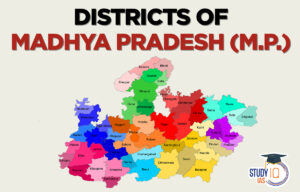Table of Contents
Context: The U.S. National Institute of Standards and Technology (NIST) launched the Post-Quantum Cryptography Standardization Project with the aim of identifying and standardizing cryptographic algorithms that can resist attacks from both classical and quantum computers.
More on the News
- The project seeks to address the potential threat posed by quantum computing to current security algorithms like RSA and elliptic curves by promoting the adoption of post-quantum cryptographic methods.
- Through this initiative, NIST is actively working on harnessing post-quantum cryptography as an essential solution to strengthen data security in the age of quantum computers.
What is Post-Quantum Cryptography?
- Post-quantum cryptography, also known as quantum encryption, is the development of cryptographic systems for classical computers that can prevent attacks launched by quantum computers.
- Traditional cryptographic methods used in modern computer systems, such as RSA and Elliptic Curves rely on mathematical problems that are considered hard to solve for classical computers but are vulnerable to being efficiently solved by quantum computers using algorithms like Shor’s algorithm.
- Post-quantum cryptography seeks to develop new cryptographic algorithms that are resilient to attacks from both classical and quantum computers.
What are RSA and Elliptical Curves?
- RSA: It is a widely used public-key cryptography algorithm named after its inventors: Ron Rivest, Adi Shamir, and Leonard Adleman.
- It is based on the mathematical properties of large prime numbers and the difficulty of factoring the product of two large primes.
- The algorithm involves generating a public-private key pair, where the public key is used for encryption, and the private key is used for decryption.
- It is commonly used for secure communication, digital signatures, and key exchange.
- Elliptic Curves: Elliptic curve cryptography (ECC) is another public-key cryptography algorithm that relies on the properties of elliptic curves over finite fields.
- ECC offers the same level of security as RSA but uses much smaller key sizes, making it more efficient in terms of computational resources and memory.
- Due to its efficiency, ECC is often preferred in resource-constrained environments, such as mobile devices and Internet of Things (IoT) devices.
What is Quantum Computing?
- Quantum computing is a rapidly emerging technology that harnesses the laws of quantum mechanics to solve problems too complex for classical computers.
- Unlike classical computing, which uses bits that can only be in one of two states (0 or 1), quantum computing uses quantum bits (qubits) that can be in multiple states at once.
- This allows quantum computers to perform certain types of calculations faster than classical computers, and to solve problems that are difficult or impossible for classical computers to solve.
- Properties of Quantum Computing:
- Superimposition: Superposition is the ability of a Quantum Computing system to be in multiple states simultaneously.
- Entanglement: It is the state where two systems are so strongly correlated that getting information about one system will give immediate information about the other, even if they are far apart.
- Interference: Interference can control quantum states and amplify the signals that go towards the right answer, while signals that are leading to the wrong answer are cancelled.

Various Qubit Technologies for Quantum Computing
- Superconducting Qubits: They are based on electrical circuits made of superconducting materials, typically niobium or aluminum.
- Trapped Ion Qubits: Trapped ion qubits use ions (charged atoms) that are trapped and manipulated using electromagnetic fields. The qubit states are typically encoded in the internal energy levels of the ions.
- Topological Qubits: Topological qubits are based on topological properties of certain exotic states of matter. These qubits rely on anyons, which are quasi-particles that emerge in two-dimensional systems.
- Quantum Dot Qubits: Quantum dots are nanoscale regions that can confine and manipulate individual electrons. Qubits are encoded in the spin or charge states of these confined electrons.
- Photonic Qubits: Photonic qubits use particles of light, known as photons, as qubits. The qubit states are typically encoded in the polarization or the path of the photons.
- Majorana Qubits: Majorana qubits are based on quasi-particles called Majorana fermions, which are predicted to exist in certain solid-state systems.

Benefits of Quantum Computers Over Classical Computers
- Quantum speedup: Compared to classical computers, including super computers, Quantum Computing can process information faster.
- In 2019, Google announced that they have achieved ‘quantum supremacy’, in which a computer harnessing the properties of sub-atomic particles did a far better job of solving a problem than the world’s most powerful supercomputer.
- Parallelism: With n qubits, a quantum computer can represent 2^n states simultaneously. This parallelism allows quantum computers to explore multiple possible solutions simultaneously, which can be advantageous for certain optimization and search problems.
- Solving Hard Problems: Quantum computers have the potential to solve problems that are currently intractable for classical computers.
- Higher privacy: The security of Quantum Computing is very high. Quantum Computing are difficult to be hacked due to their use of qubits.

Concerns Associated with Quantum Computing
- Higher cost: The cost of setting of Quantum Computing system is high. It will require a significant support from multinational companies.
- Temperature control: Quantum computers dissipate high heat and consume high amount of electric power. They require low temperature for operation.
- High error rate: The error rate of Quantum Computing is high in comparison to error rate of conventional computers.
- Sensitivity to Environment: Quantum technology is highly sensitive to environmental interference, such as temperature changes, magnetic fields, and vibrations.
- Qubits are easily disrupted by their surroundings which can cause them to lose their quantum properties and make mistakes in calculations.
- Limited Control: It is difficult to control and manipulate quantum systems. Quantum-powered AI could create unintended consequences.
Initiatives taken by the Government
| National Quantum Mission (NQM) |
|
| Quantum-Enabled Science and Technology (QuEST) |
|
| Quantum Frontier mission |
|
| Quantum Computer Simulator Toolkit (QSim) |
|
| I-HUB QTF |
|
| Quantum Computing Applications Lab |
|


 UNESCO World Heritage Sites of India Lis...
UNESCO World Heritage Sites of India Lis...
 Consolidated Fund of India, Meaning and ...
Consolidated Fund of India, Meaning and ...
 Districts of MP List, Name, Importance, ...
Districts of MP List, Name, Importance, ...





















